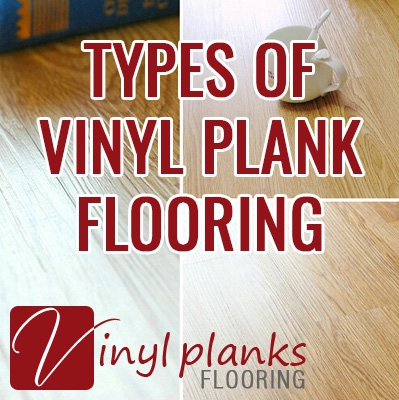Whether it's durability or ease of maintenance, vinyl flooring has it all. And for these reasons,
vinyl flooring options have become popular among interior designers and homemakers alike. Because of the versatility of vinyl flooring, it can be laid easily in any part of your house like the kitchen, family rooms or even bathrooms. And Depending on the room of the house, there are different types of vinyl flooring options. Basically, vinyl can be found in different types such as planks and sheets. Vinyl surfaces are treated with different agents to create more resistant planks.
Vinyl tiles are available in different sizes of squares that can be assembled or arranged in patterns to mimic the look of stone flooring.
Vinyl sheets, on the other hand, are mostly found as large rolls which can be easily installed with less groves and are especially good for kitchens and bathrooms.
Depending on the method of installation, vinyl plank types are categorized into four types.
Self-adhesive vinyl planks already have glue on their lower surface ready to be stuck directly on a clean subfloor. Not much expertise is required to install these. No extra adhesive is needed for the installation of this vinyl flooring.
Glue down vinyl flooring needs specially made adhesives to be used on the floor before placing vinyl planks on it. These types of vinyl are hard to remove compared to other types of vinyl flooring.
Interlocking vinyl tiles are placed together with the help of a click-lock system where two adjacent planks or tiles are attached by tongues and grooves to form the vinyl flooring. These are best left to professionals to handle. Every single interlock of a plank or a tile needs to perfectly click through the adjacent tiles.
Loose lay vinyl planks adhere firmly to the sub floor just by the property of friction, making these
vinyl planks relatively heavier than other types of vinyl. No glue or click-lock system is required to install these types of vinyl planks. These are the easiest to install if the subfloor is made or prepped to make the loose lay vinyl stay put. It is a relatively good choice for smaller places.
 Whether it's durability or ease of maintenance, vinyl flooring has it all. And for these reasons, vinyl flooring options have become popular among interior designers and homemakers alike. Because of the versatility of vinyl flooring, it can be laid easily in any part of your house like the kitchen, family rooms or even bathrooms. And Depending on the room of the house, there are different types of vinyl flooring options. Basically, vinyl can be found in different types such as planks and sheets. Vinyl surfaces are treated with different agents to create more resistant planks.
Whether it's durability or ease of maintenance, vinyl flooring has it all. And for these reasons, vinyl flooring options have become popular among interior designers and homemakers alike. Because of the versatility of vinyl flooring, it can be laid easily in any part of your house like the kitchen, family rooms or even bathrooms. And Depending on the room of the house, there are different types of vinyl flooring options. Basically, vinyl can be found in different types such as planks and sheets. Vinyl surfaces are treated with different agents to create more resistant planks. Admin0 Comments
Admin0 Comments



